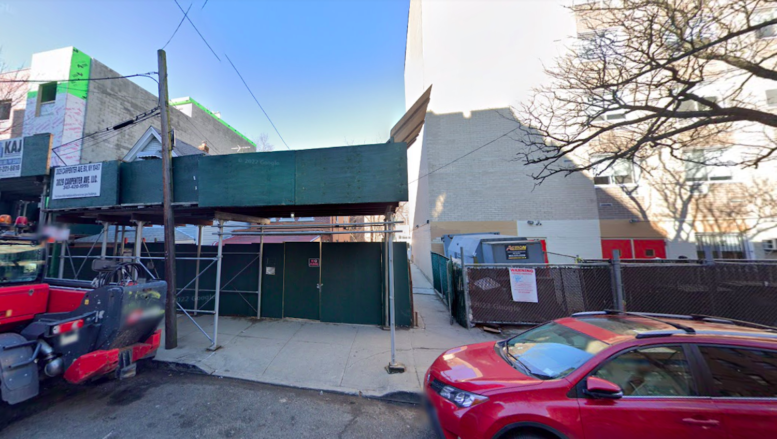Defendant Provided Confidential Bidding Information to a Bidder and Received Lucrative Kickback Payments in Return
Damian Williams, the United States Attorney for the Southern District of New York, announced that MAY SALEHI, a former State Department employee, was sentenced today to 12 months in prison for conspiring to commit honest services fraud. SALEHI was a longtime State Department employee who was involved in evaluating bids for critical overseas government construction projects such as U.S. embassies and consulates. SALEHI gave confidential inside bidding information to a Government contractor, and received $60,000 in kickback payments in return. SALEHI was sentenced by United States District Judge Jed S. Rakoff.
U.S. Attorney Damian Williams said: “As a State Department employee, May Salehi was entrusted to serve the public. Instead, she abused her position to line her own pockets. Salehi revealed, and traded on, confidential information—corrupting the bidding process and receiving lucrative kickbacks in return. Thanks to our partners at the State Department’s Office of Inspector General, Salehi’s crime of deception has been uncovered, and Salehi has now been sentenced to prison.”
According to the allegations in the Information, court filings, and statements made in court:
From 1991 until mid-2021, MAY SALEHI was a State Department employee. For many years, SALEHI worked as an engineer in the State Department’s Overseas Building Operations division (“OBO”), which directs the worldwide overseas building program for the State Department and the U.S. Government community serving abroad.
In 2016, the State Department solicited bids for a multimillion-dollar construction project known as a compound security upgrade to be performed at the U.S. Consulate in Bermuda (the “Bermuda Project”). The bidding process involved the submission of blind, sealed bids from various bidders. Six companies submitted sealed bids, one of which was named Montage, Inc. (“Montage”).
SALEHI was involved in the Bermuda Project in several respects. Among other things, SALEHI served as the Chair of the Technical Evaluation Panel (“TEP”)—a panel of experts that evaluates the technical aspects of bids, including whether they meet the State Department’s structural and security needs. In connection with the Bermuda Project, the TEP determined that five bids—including Montage’s bid—were technically acceptable.
In September 2016, the State Department’s employees who evaluate the cost of bids gave these five bidders—including Montage—the opportunity to re-bid, if they wished to do so. Montage had two days to decide whether to submit a re-bid. During that two-day window, Montage’s principal, Sina Moayedi, contacted SALEHI by phone to seek confidential inside bidding information about the relationship between Montage’s bid and those of its competitors. SALEHI agreed to meet Moayedi in person during the work day. In response to Moayedi’s inquiry, SALEHI told him that all five bids were low, and that his bid was lowest by about a million dollars. Moayedi said that he would give SALEHI 1% of the contract value if he won; and as she walked away, SALEHI proposed a cover story by stating: “I have rugs to sell.” SALEHI knew that it was unlawful to provide this confidential bidding information to a bidder. After Moayedi received this inside information from SALEHI, Montage immediately increased its bid by nearly $1 million. In its revised bid to the State Department, Moayedi and Montage lied as to the reason it had increased its bid by nearly $1 million, falsely claiming that it had discovered “an arithmetic error” in its estimates. Montage was ultimately awarded the Bermuda Project with a revised bid of $6.3 million.
In the months that followed, Moayedi provided SALEHI a total of $60,000 in kickbacks, which he paid in three installments. In making these kickback payments, Moayedi used intermediaries to obscure the link between him and SALEHI. To conceal the true purpose of the kickback payments, as she had suggested, SALEHI gave Moayedi a Persian rug, by providing it to an intermediary who passed it to Moayedi. SALEHI did not report the $60,000 kickback payments on her taxes, her State Department financial disclosure forms, or her application to renew her top-secret national security clearance.
In addition to her prison sentence, SALEHI, 66, of Washington, D.C., was sentenced to three years of supervised release. SALEHI was also ordered to forfeit $60,000 and to pay a $500,000 Fine.
Sina Moayedi has been charged with wire fraud, conspiracy to commit wire fraud, conspiracy to commit honest services wire fraud, and major fraud against the United States. The charges against Moayedi are pending. See 22 Cr. 188 (JSR).
Mr. Williams praised the outstanding investigative work of the State Department OIG, Special Agents from the United States Attorney’s Office for the Southern District of New York, and IRS‑CI.



